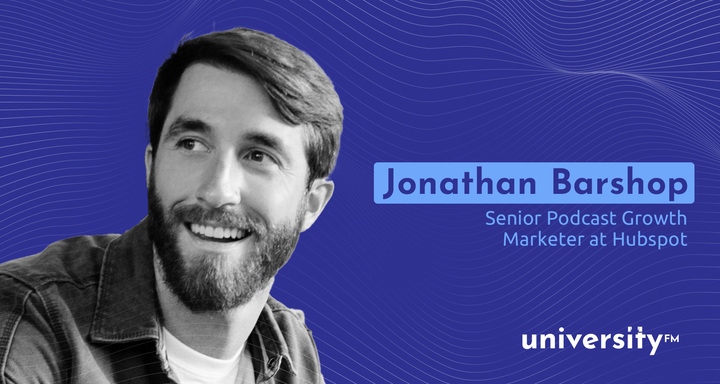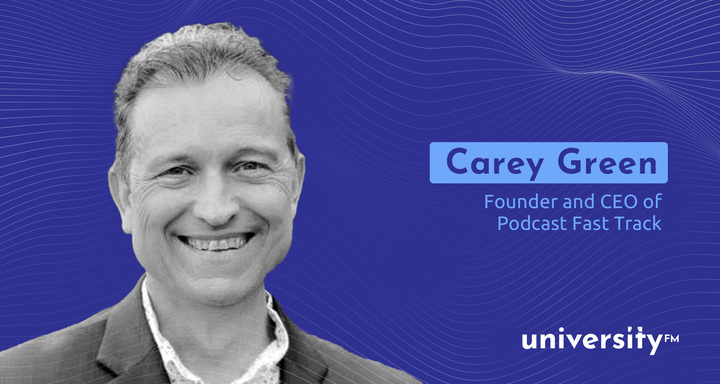Initially, choosing a podcast topic might seem easy. Just pick a subject you want to explore and start, right? Although you might be tempted to figure out the details of your topic later on, planning those details now can ensure your podcast starts off strong.

Podcast review criteria
There are a few criteria that can help you ascertain the effectiveness of a podcast’s topic choice.
- Need-based: First off, consider how the podcast’s topic meets a need in its community or reaches the target audience.
- Relevance: Then, try to understand why the podcast’s topic choice matters to the audience. Being able to answer that why is crucial to the success of a podcast.
- Niche: Then, look at what factors set the podcast apart from other podcasts in its topic genre. Examine how well the podcast hones in on its niche.
- Format: Next, think about the effectiveness of the podcast’s format choice. Does the format choice suit the topic?
- Credibility: Next, analyze how well-researched the podcast’s topic is. Does the podcast fact-check factual information for accuracy? Are the podcast participants aware of the ideas, information and current trends within their topic field?
- Engagement and networking: Finally, consider how the podcast engages with its audience and networks with outside sources. Does the podcast make an effort to listen and interact with its audience and invite expert voices and trustworthy sources to discuss topics?
Real Talk: A Diversity in Higher Ed Podcast (Southern Connecticut State University)

Southern Connecticut State University’s Real Talk podcast’s first episode was released in October of 2020 by the then new Office of Diversity, Equity and Inclusion. Created after George Floyd’s passing, the podcast began as an effort to address the needs of its on campus community, existing to amplify marginalized voices on campus. The topic mattered to the audience not only because of its timeliness, but also because of its relevance—diversity initiatives exist not only to inform and educate, but also to signal to faculty and students alike that they are heard and understood.
In its 2 years, the podcast has since made an effort to reach off-campus listeners as well. The podcast team networks with the community to feature a variety of guests. Additionally, they invite guests qualified to speak to their chosen topics.
Big Brains (University of Chicago)

One of the most effective aspects of University of Chicago’s Big Brains podcast is that it creates a space for scholars to discuss research, science, law and more—but in a non-academic fashion. The podcast relies on an interview-style format that lends itself to not only easy conversation, but also easy listening.
Since some listeners might be deterred by the rigorous and technical aspects of the information being shared, this format choice is highly effective. It makes scholarly academic materials accessible to audiences who might not be familiar with these topics.
CareerLift (Oregon State University)

Oregon State University’s CareerLift podcast focuses on providing helpful tips for breaking into your dream career path. Many universities have podcasts that center around sharing the chosen career paths and achievements of alumni. While CareerLift includes similar content, it also makes an effort to include other content relevant to its chosen niche: an episode on resumes and cover letters, one on setting goals and planning and even one on navigating careers during the pandemic.
By incorporating this alternative content, CareerLift sets itself apart from the more typical university career-focused podcast.
Know your podcast
Any podcast should meet all these criteria. Successful podcasts are need-based, meeting a need in their community. The best way to meet a need is to ensure relevance by making sure the topic of choice relates to your audience’s experiences. After picking a relevant topic, you’ll want to narrow that topic down until you have a specific niche that meets the interests of your audience.
Depending on what niche you choose, a certain format might be the best option for delivering your message. In exploring your topic, ensure that you put credibility first to build audience trust. One way to build trust is to network and engage with not only the audience, but also other podcasters and people in the niche field of choice.
While meeting all of these criteria is important to the success of a podcast, you might need to hone in on one aspect more than others.For example, format is a key aspect of the success of the Big Brains podcast. Other podcasts might need to focus on certain production aspects more. Ultimately, no two podcasts are exactly alike—each has its own goals and meets those goals differently.





